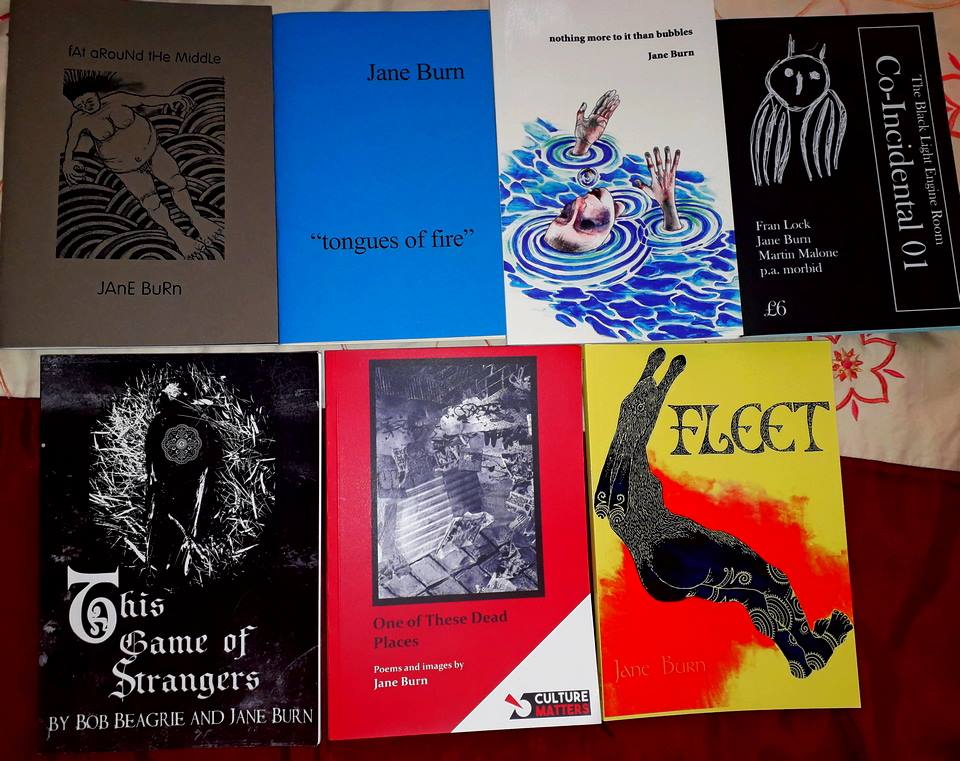
JANE BURN – POETRY AS HARD GRAFT, INSPIRATION, REACTION OR EXPERIMENT?
I interviewed poet & artist Jane Burn who won the Michael Marks Environmental Poet of the Year 2023-24 with A Thousand Miles from the Sea.

I interviewed Chris Emery, poet and co-director of Salt Publishing, a highly-successful independent publishing house who have introduced many gifted writers to their readers. “We believe books are key to developing an imaginative life, and that the imagination is key to being fully human. We intend to make a positive difference to readers’ lives.”
Chris is a several-times published poet, editor and anthologist. He is on the Advisory Board of Inkandescent – a London press committed to ideas, subjects and voices underrepresented by mainstream publishing. Together with his team, Chris received the Nielsen Innovation Award for Salt’s work in taking poetry to new audiences, and an American Book Award from the Before Columbus Foundation for services to Native American Literature.
Leslie: Can you summarise for readers unfamiliar with Salt, your main areas of publication and what kinds of writing you publish?
Chris: Salt is a small, commercial literary publisher – we’ve published across many subjects down the years: essays and literary companions, creative writing, memoirs and biography, children’s poetry and adult poetry, novels and novellas, short stories, as well as numerous anthologies of poetry and short stories. At one point we ran two online magazines. We currently publish novels, short stories and fiction from British authors, or authors resident in Britain.
Leslie: What’s distinctive about Salt and what have been the key ingredients in its success?
Chris: I have to say success is largely to do with luck and timing and I’d be misleading you if I suggested we had a formula for it; we really don’t. Readers respond to books in ways you cannot effectively predict. Of course, we focus on readers, given they are our business, but second-guessing the tastes of tens of thousands of individuals can be costly and inaccurate. We want writing that is accessible, but not jejune. We want stories and poems to be challenging but enjoyable and memorable. We certainly want to provide readers with experiences that will widen their worlds, give them fresh perspectives. Reward and instruct. But I know that in so many, many cases, one of our editors will simply believe in a work and want to take it out to the public and we get behind that. Passion drives publishing.
Leslie: How does Salt try to act as a good publisher, particularly in terms of its main participants – authors, publishing staff + helpers and readers?
Chris: We start with readers, and we hope that we have the infrastructure to put books into their hands – the right distributor, the right sales team, the right relationships with booksellers and literary advocates, good relationships with bloggers and people on the ground who make those all-important recommendations. That context of the book trade is vital, you have to have those building blocks in place. Everything flows from this, supporting authors through the publication process, getting the product right, from content to brand to engagement and discovery. We have always been a small team, there is a core of directors, but editors join and leave, we’ve had numerous interns down the years and we try to offer opportunities for people to really understand the whole dynamics of the book trade. Many of our former staff have gone on to work with other independents or conglomerates.
The team is very small right now, as we recover from the effects of Brexit and the pandemic. But you ask me how we try to be good and I’d say that we try to act as a friendly competitor and a rewarding collaborator. No one succeeds on their own. Publishing is about people and relationships. I can’t say we get it right all the time, and getting it right can sometimes mean doing something very tough in order to survive, but on the whole, I think we’ve launched some amazing careers for authors and delighted around half a million readers.
Leslie: How do you deal with the huge volume of submissions that all publishing houses receive once they declare themselves open to submissions?
Chris: You need to have a procedure in place, and you need to have a strong sense of judgement about what will fit, what’s worth investing time in. Time is the real issue, even more than cash. When you take on a book, you’re assigning a huge chunk of someone’s life to it and to its likely success; the books have to pay salaries and protect livelihoods. I think over two or three decades you develop strong instincts about books and people, sometimes you have a strong book but the author isn’t ready for the book trade, sometimes you get someone with huge experience but the book is weak – you can spot something that’s well-written within 50 words – something that’s worth continuing with. But you have to be swift in making your judgements, if there are 500 new works coming in each week, you have to ask yourself, Is this worth more of my time? Will it make us money? Can I support this author? Can we make this succeed?
Leslie: What are the advantages and disadvantages of being a family business?
Chris: I can only speak from my own experience here, and I have a very fruitful and frank business relationship with my wife and fellow director, Jennifer. I wouldn’t have survived the past twenty-three years in publishing without her. We know each other’s strengths and weaknesses, we have complementary skills sets, we give each other room to develop our own ideas and lists. I think that complementarity is very important to the team. But I think of our employees as part of the family, the Salt family, and we have, really, very deep relationships with everyone. There’s no hierarchy, well not much, and I think we all know what we can do when we all come together. We’re up against some major competition in our markets. Yeah, a lot of upsides in those aims and hopes and dreams. The downside? Well, there were periods when it felt we never left work. There were periods when the financial challenges hit our children and home life. There were practical implications in the early days as we filled the house with boxes of books before we had decent distribution (one of the hardest things to secure). I guess that aspect of the business being inside your home can be oppressive. You need to find boundaries, I often failed there.
Leslie: Has the expansion of the internet and major lockdowns changed your methods?
Chris: No, it hasn’t. The business was really built on the growth of the internet and especially social media, it allowed us to have direct relationships with readers in a way that we previously impossible. The lockdowns were a huge interruption in service, but the fundamentals are completely unchanged. The worst impact has been Brexit – and the Trade and Cooperation Agreement with the EU. This wiped out our export sales both to the EU and the world. That’s been a major business challenge for us. The huge introduction of trade barriers has reduced our overseas sales and the markets we’d been trying to open up for two decades. It was wiped out almost overnight.
Leslie: What have you learned about yourselves as well as the publishing trade from working on Salt?
Chris: I can’t speak for my colleagues, I’ve found publishing to be a hugely rewarding life, filled with surprises. Each book is almost like starting over in the job – each book has its own trajectory and challenges and pleasures. I love that constant sense of renewal and freshness. And I love people, so the trade certainly brings in thousands of relationships with agents, artists, designers, printers, publishers, sales staff, exporters and importers, publicists, events organisers, radio and television presenters, bloggers and reviewers, critics and confidants, funders, fans – that whole gorgeous complex of interactions and passions.
However, I have also learned that publishing isn’t quite the perfect fit for my life as a poet. You need to immerse yourself in publishing to succeed, and I had to give a great deal of my time to helping my authors to find their readerships – yet this was, in some respects, at the expense of my own. It’s taken me a long while to find that balance there and I wish I’d found it sooner. But I can’t complain. It’s been a wonderful journey.
Leslie: Tell me about your own writing.
Chris: Like so many of us, I started in my teens and was encouraged by teachers. I was passionate about the visual arts and it was this path I chose to study. That was enormously enriching and informed my writing life in often complex ways. By the time I was in my twenties, I was writing quite seriously. Yet I had to make a choice – and after graduating I felt I needed to focus on either painting or writing, and I chose the latter. From that point on, I realised that writing would be my life. I never expected to make money from it, so I wanted to organise my professional life around this private obsession – I took some dead-end jobs, part time work, to allow me to write. And I read everything I could find. I think I began as an experimental writer, then realised I needed to diversify and began writing more accessible work. I began having poems published in the late 1980s, but it took over a decade before I found my feet and had a pamphlet published, followed soon after by my debut, Dr Mephisto. My writing had swung back towards experimentation and political poetry. At the same time, I became interested in running my own publishing business, too.
I think writers, poets especially, have to embark on new versions of themselves every decade or so – if you want to be a writer, you need to write about things that extend your art in new directions – this might not be successful, but these stretching exercises can have surprising results, leading you to new discoveries. I don’t see poetry as a stylistic choice, less still a matter of taking sides or positions vis-a-vis the art. It’s about being able to tackle anything, any subject, any trajectory and to expand and evolve. There’s nothing quite so disappointing than finding a writer who repeats their subjects and effects. I’m a big fan of writing daily, writing a draft, forcing yourself to complete that first incarnation of a work that you may return to or abandon, but getting the draft of a poem down is a good practice. I like poems to not be about me, to not be me, to have a sense of the other, in the way that fiction can provide. I occasionally see poems as delicious lies. I certainly yearn for my own absence in the writing, and the poems – driven by chance and the logic of acoustics – can utterly surprise one with their content and views. I may find them abhorrent or banal, but I keep those I find have an authenticity in whatever ways that can be fledged out. The poem must feel real. I decided in 2017 that I’d experiment with releasing work on social media and I’ve been steadily do that, I wanted a more direct relationship with my readers (those happy, happy few), and to please and surprise those readers with something new each day. That practice is still working for me and I’ve been enjoying an extraordinarily fertile period in my writing. But as yet, the two collections that have emerged have no publisher: I lost my two previous publishers, one to death and one to carelessness on my part. I imagine I’ll have to begin considering that now we’re free of the pandemic.
Next week I interview abstract artist Caroline McPherson, who uses strongly-coloured acrylics and mixed media to make powerful statements about climate and ecological breakdown.
ABOUT LESLIE TATE’S BOOKS:

I interviewed poet & artist Jane Burn who won the Michael Marks Environmental Poet of the Year 2023-24 with A Thousand Miles from the Sea.
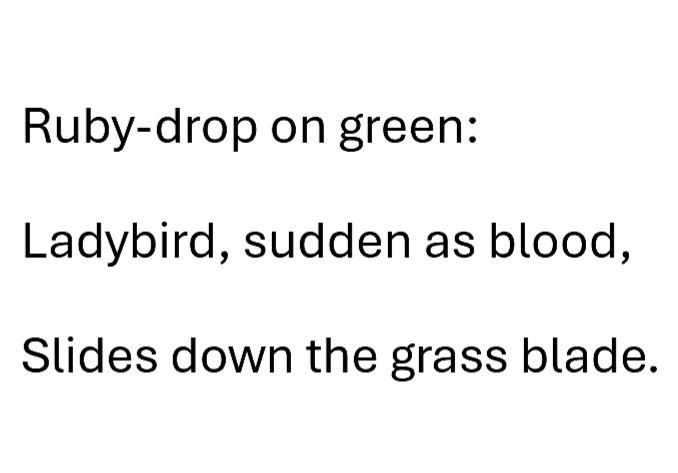
I interviewed ex-broadcaster and poet Polly Oliver about oral and visual poetry, her compositional methods, and learning the Welsh language. Polly says, “I absolutely love
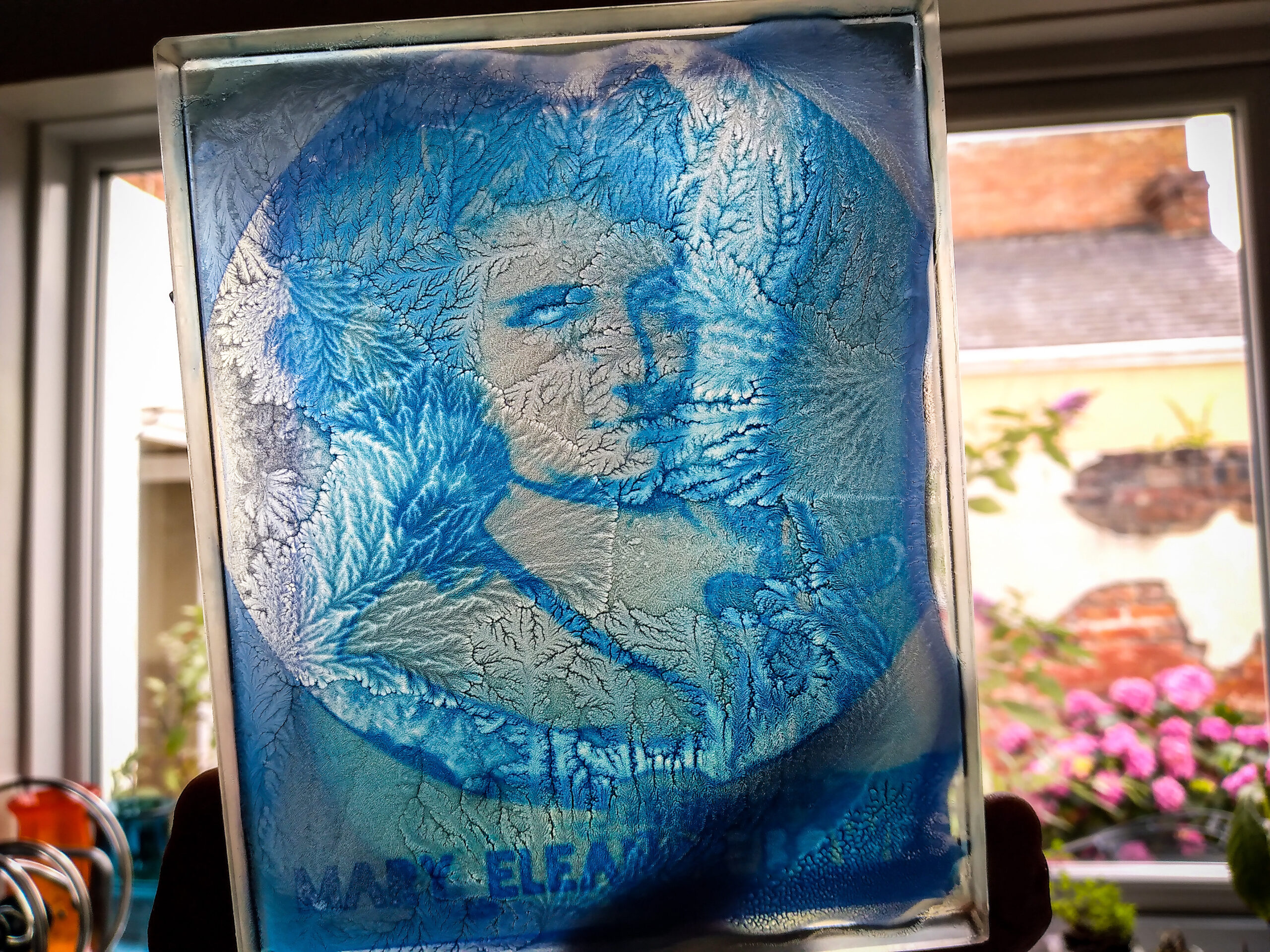
I interviewed Jo Howell who says about herself: “I’ve been a professional photographic artist since I left Uni in 2009. I am a cyanotype specialist.
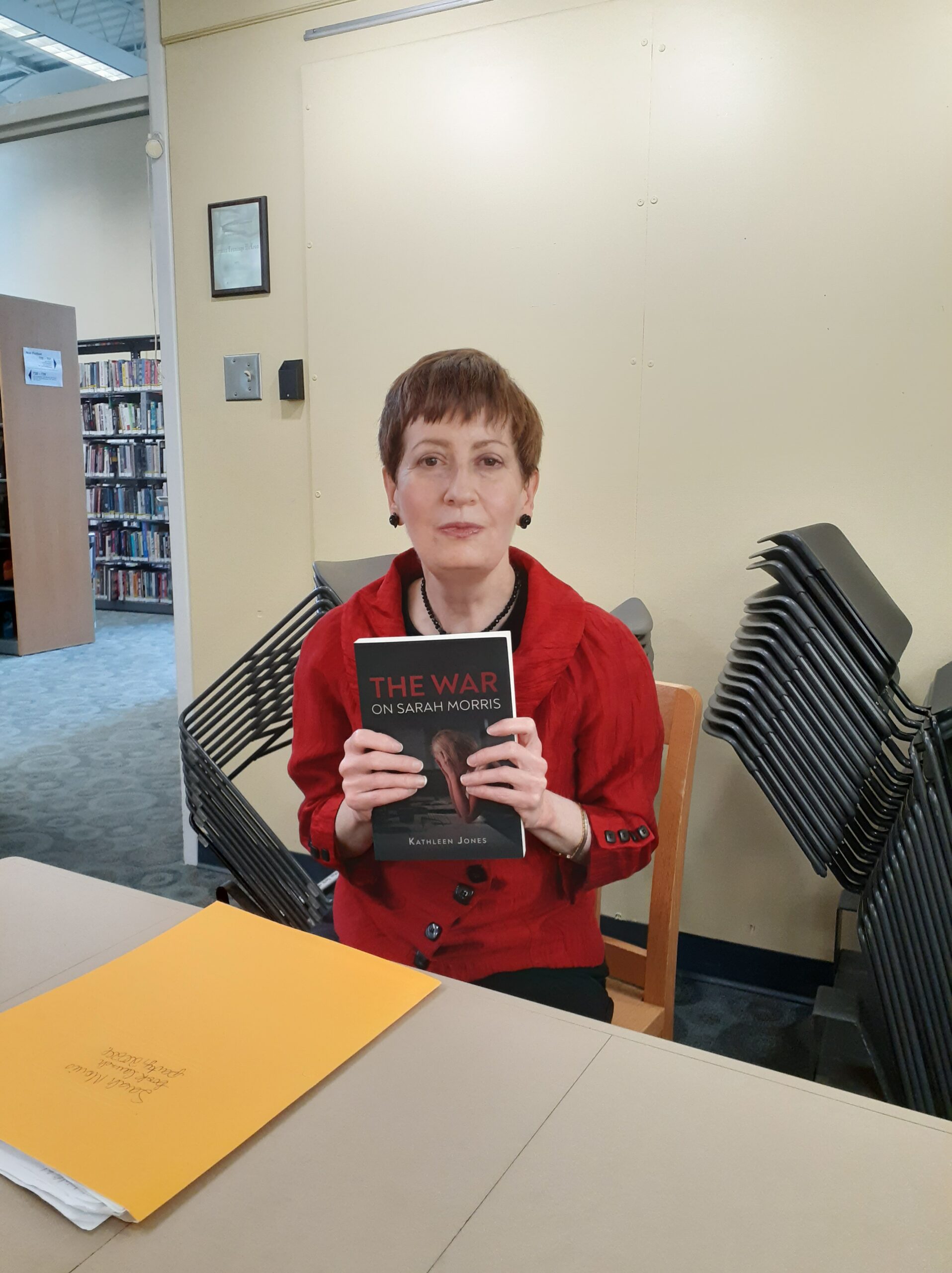
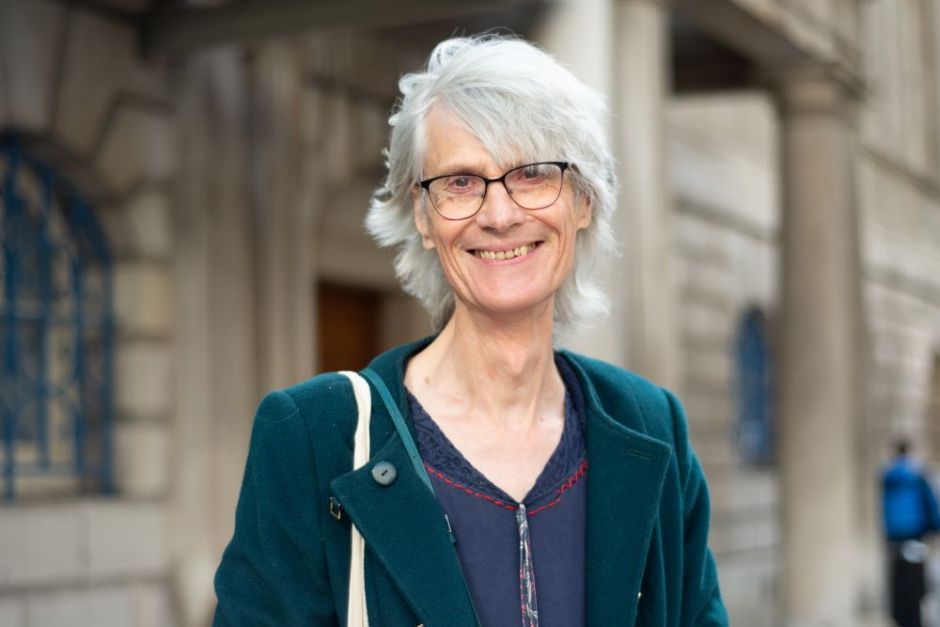
Poet Tracey Rhys, writer of Teaching a Bird to Sing and winner of the Poetry Archive’s video competition reviews Ways To Be Equally Human. Tracey,
| Cookie | Duration | Description |
|---|---|---|
| cookielawinfo-checkbox-analytics | 11 months | This cookie is set by GDPR Cookie Consent plugin. The cookie is used to store the user consent for the cookies in the category "Analytics". |
| cookielawinfo-checkbox-functional | 11 months | The cookie is set by GDPR cookie consent to record the user consent for the cookies in the category "Functional". |
| cookielawinfo-checkbox-necessary | 11 months | This cookie is set by GDPR Cookie Consent plugin. The cookies is used to store the user consent for the cookies in the category "Necessary". |
| cookielawinfo-checkbox-others | 11 months | This cookie is set by GDPR Cookie Consent plugin. The cookie is used to store the user consent for the cookies in the category "Other. |
| cookielawinfo-checkbox-performance | 11 months | This cookie is set by GDPR Cookie Consent plugin. The cookie is used to store the user consent for the cookies in the category "Performance". |
| viewed_cookie_policy | 11 months | The cookie is set by the GDPR Cookie Consent plugin and is used to store whether or not user has consented to the use of cookies. It does not store any personal data. |
One Response
HI Leslie, this is a most interesting article. Many things Chris said about publishing rankled with me and I can see how being a publisher would result in your own work being pushed aside to a large extent. I didn’t realise Brexit had been so adverse for this industry, that is most unfortunate.